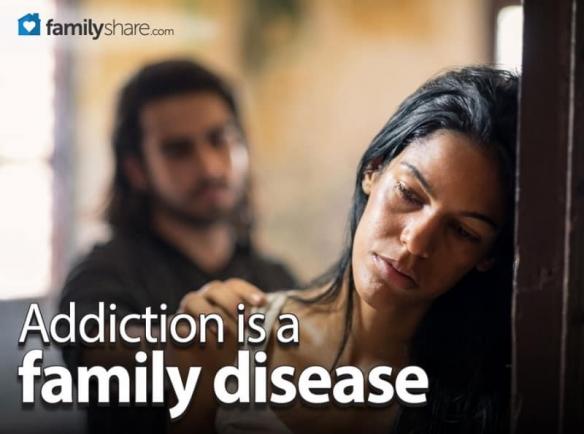
Helping a loved one through their struggle can be a complex and stressful endeavor. There is a fine line between offering assistance and getting in the way. Coming from a long line of alcoholism, it was easy to see these lines blurred, especially as a child of healthy parents with substance dependent siblings or parents themselves. I have witnessed several family members go through periods of heavy and curbed use of their substance, or behavior of choice; anywhere from shopping to alcohol to street drugs. Don't forget, smoking can become an addiction, as well. I even struggle with food and sugar cravings, and spells of "workaholism"� myself.
Different issues come into play when this dependence is legal, socially acceptable, and allows the person to function fairly normally in society. Something not usually seen in illicit or prescription drug addiction. Functioning addicts maintain their jobs, home and social lives fairly well. Recognizing and coping with a loved one with a functioning addiction brings up different aspects to be addressed moving forward, and staying healthy.
Addictions, however severe, need tough love. Tough love means contributing to the health of the person on the whole, not their substance or behavior dependence. Consider the following when engaging with an addicted loved one:
Enabling
-
Enabling behaviors are those that aid the addiction, often under the guise of helping the person. In enabling, you may believe you're helping the person get better. But you're actually helping the addiction get worse.
-
Enabling behavior includes giving an addict food, money or a place to live while they're actively using.
-
Doing these things while the addict is officially in recovery and not using is not enabling. However, it must stop if there is a relapse.
Boundaries
Set rules with consequences, and perhaps rewards, with your addicted loved one. Then stick to them! Don't allow any leeway. One sidestep opens the door for complete exploitation.
Counseling
-
Seek professional help, particularly from someone with expertise in addictive behaviors and substance abuse.
-
Services like Al-Anon and Nar-Anon help family members of alcoholics and addicts understand how to cope with their stressful circumstances.
Contact
-
Contact with an addict must be limited and structured, especially contact with children. Keep children away from anyone engaged in his addiction at the moment. Only allow them around each other in a supervised setting for a certain period of time when he is clean and sober.
-
Ban contact if the addicted loved one cannot be trusted to be physically or emotionally safe with your family, or has a history of stealing from your family.
-
As always, seek professional treatment and advice.
Communication
-
Teach your children about the dangers of addiction. What addiction is, how they start, how to avoid the triggers, and what to do if they or someone they know is suffering.
-
Let them know this is a healthy household. While the children will always be welcome and loved, addiction will not. Dependence and problems of any kind will be addressed. The child will be cared for.
Care
-
Focus on caring for the addicted loved one, not caring for the addiction. Addiction has no place in your family. But that person is always welcome.
-
Let her know she is in your heart. But addiction is not allowed in your house.
-
Make sure he understands that his disease belongs to him, and while you will support him through his recovery, by no means will you allow him to make you sick, as well. Promise him and yourself that you will stay healthy.
There are many definitions for addiction. One of my favorites encompasses a wide spectrum of cases: Addiction is continuing behavior despite negative consequences. So if you're not sure if you or someone you know is struggling with dependence, ask yourself:
-
Is it compulsive? Do you feel like you have to?
-
Is it impulsive? Do you get sudden, overwhelming urges?
-
Do you have trouble regulating your emotions if you stop?
-
Is it safe?
-
Is it harmful?
-
Does it interfere with developing and maintaining intimate human connections?
-
Do you feel good when you do it?
-
Do you feel bad when you stop?
-
Is it ever enough?
-
Do your friends and family object to it or express concern about it?
If the answer to any combination of these questions is "yes,"� you may be dealing with dependence. Seek help. For yourself, and for the one you love. Many amazing resources and answers can be found at AddictScience.com.
When it comes to dealing with a family member with an addiction, things are black and white. If you are not a part of the solution, you are likely part of the problem. Helping the person become healthy may mean going against your intuition and desires. Often, how we normally engage with a loved one will actually end up helping the addiction. And hurting the person.
Be strong. Be supportive. Keep your boundaries firm. Most of all, stay healthy!

